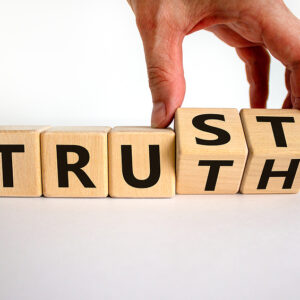“I wouldn’t allow a Republican to enter my home.” “Around here, a Democrat is no different than a child molester.” “Anything Blacks want, I’m against.” These are statements I’ve personally heard or recently read. They are a measure of just how deeply distrustful and angry our nation has become.
The fact that we rank low in trust should surprise no one. Our political partisanship, in particular, is so evident as not to be a matter of dispute
There are ways to rebuild trust. In a classic psychological study, social psychologists Muzafer and Carolyn Sherif divided 22 eleven-year-old boys into two groups and assigned them into separate cabins unbeknownst to each other. The researchers were interested in examining whether deep personal divisions can reverse. Each group spent their first week undergoing an environment to build internal cohesiveness.
At the end of that week, the groups learned of the other group’s existence and were given information to create enmity and hostility toward them. The process was successful enough that the groups refused to eat together in the same dining room.
In the final phase of the experiment, the psychologist sought to turn the rival groups into friends. They created teamwork exercises forcing the two groups to collaborate. The effort worked to the degree that the boys decided to ride the same bus home at the end of the experiment.
It is too much of a stretch to generalize the success in reducing hostility and gaining trust from this little study to our current divisions. However, there are some lessons to consider.
Unless people have contact, distrust is difficult to overcome. Additionally, collaboration in reaching a mutual goal goes a long way in reducing distrust.
There are examples of that happening right now. The U.S. military stands out. It has made significant progress in integrating women and people of color, both thought nearly impossible, not many years ago. Although there are numerous examples of ongoing problems in this endeavor, the transition has been largely considered a success in progress. The enormous social change is fundamentally based on close contact and common goals.
Getting citizens to trust their opposition through conversation is “Fools Gold.” The distrust and even hatred right now among our citizens are too great. An external force is needed—the government.
To be clear, the government cannot directly promote trust, but it can provide an environment where some amelioration of our distrust dilemma can occur. It’s been done before, perhaps, not as a goal, but achieved through government action.
Franklin Delano Roosevelt’s Civil Conservation Corps built cohesiveness within our citizenry roughly eighty years ago. The CCC was a great success in providing millions of men with work and financial solvency. But the CCC was more than economics. It brought together men from all over the country to live and work together. My father, who had never traveled far from home, reveled in the experience. Not only did he provide essential financial assistance to his family, but his view of his world and his country also expanded. I believe he never felt more American than during that experience.
President Biden has called for a modern version of the CCC in what the administration calls the Civilian Climate Corps. The aim is to “address the threat of climate change, strengthen the country’s natural defenses and maintain its ailing public lands.”
As laudable as these intentions are, the United States faces a more significant problem than even climate change. Unless it addresses the deep division within our citizenry, we will be unable to function and worse.
Creating citizen programs to address the many malaises plaguing our country may sound outrageous to some. Still, the poison of our national distrust is so great as to call out for some government action to address the issue. The consequences of inaction are potentially catastrophic.
Distrust of other groups is corrosive. It keeps us on edge, vulnerable to conspiracies. It reduces our sense of safety and well-being. It undermines democracy.
It’s not an exaggeration to state that significant portions of the American public feel hatred or disgust with their opponents. Another group is utterly frustrated and has disengaged. Creating government programs that engage Americans to work together in this dangerous national environment could be an important step in rebuilding trust.

